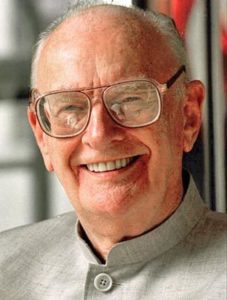Views: 167
Too often I chastise myself for reading escapism sci-fi. Lord knows I’ve spent countless hours with my head in the stars. Nevertheless, given the current state of the planet, you can hardly blame yourself for picking up a book and floating away.
It is surprising how poignant and appropriate stories of galactic governments and Utopian dreams reflect the sad predicament we find ourselves in today.
The obvious propaganda for one world government and their lies about food scarcity, environmental disaster, art, and human consciousness is appalling.
Is Arthur C. Clarke a prophet of predictive programming inserted into our society to prepare us for the Overlord takeover?
When viewing this fantastic collection in retrospect, I believe that’s exactly what the author intended. If Arthur C. Clarke and his naive vision of the future could comprehend the wickedness, lies, and secrecy the technocracy contains, I’m certain he would have written more tales about the hero destroying the centerpiece of control, AI, the robots, and mind-control of the masses.
This collection is an absolute pleasure. The short story form is easily digested by the twenty-first century scatterbrain like me. Only a few minutes of attention is required for each fantastic tale. Have fun.

My highlights:
“In the title story of this collection, Earth has entered its final ice age precipitated by the cooling of the sun. In this forbidding climate, a small tribe of nomadic human survivors travels toward the equator ahead of glaciers moving down from the North Pole, carrying with them a handful of relics from the 21st century and racing against the ice to preserve them from annihilation. This collection is a showcase of groundbreaking stories that wrestle with the moral, psychological, and ethical implications of scientific advancement.”
“And as C. S. Lewis (creator of both superb science fiction and fantasy) once remarked to me: ‘Who are the people most opposed to escapism? Jailors!”
“For the first time in his life he was thinking seriously about the difference between left and right.”
“Will and Ariel Durant’s Story of Civilisation: ‘Civilisation is an interlude between Ice Ages’, and observes ‘the next one is already overdue; perhaps global warming has arrived just in time to save us.”
“It could perform only the lower grades of intellectual work and it lacked such purely human characteristics as initiative, intuition, and all emotions.”
“The builders of Comarre had cared nothing for good or evil—and the machines had been their faithful servants.”
“He could see the flaws in these synthetic worlds, could observe how all the critical faculties of the mind were numbed while an endless stream of simple but vivid emotions was poured into it.”
“Altruism? Don’t be a fool! You did it to bolster up your own good opinion of yourself—so much more important than anyone else’s!”
“I said I’ve always tried to act like a civilised man—and a civilised man should always know when to get drunk.”
“Three days without food, it is said, is long enough to remove most of the subtle differences between a civilised man and a savage.” — Prepare for the food crisis.
“The only way to conquer imaginary fears was to face them boldly; he would have to do that now.”
“Because we have made no machines, because we have turned our backs upon the stars and are content with our own world, don’t think we have been completely idle. Here in Shastar we have evolved a way of life that I do not think has ever been surpassed. We have studied the art of living; ours is the first aristocracy in which there are no slaves. That is our achievement, by which history will judge us.”
“It has happened before, and it will happen again. Shastar will go the way of Babylon and Carthage and New York. The future is built on the rubble of the past; wisdom lies in facing that fact, not in fighting against it.”
“The person one loves never really exists, but is a projection focused through the lens of the mind onto whatever screen it fits with least distortion.”
“No one had ever told her, and she had not yet discovered, that when one has to ask ‘Am I really in love?’ the answer is always ‘No’.”
“It was good to be alive; it was better to be young; it was best of all to be in love.”
“Yet he still thought of them as his inferiors, for to have lived in a city—however beautiful, however brilliantly designed—was to Brant one of the symbols of barbarism.”
“What you need now is more practice—and above all, more experience.”
“Great art and domestic bliss are mutually incompatible.”
“This was the pause when history held its breath, the hushed moment between the lightning flash and the advent of the first concussion.”
